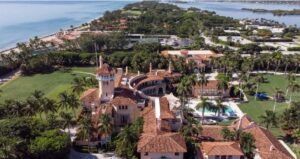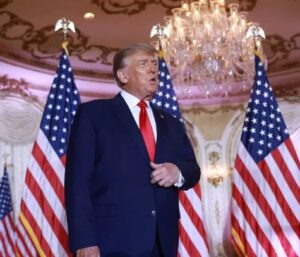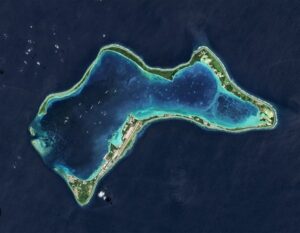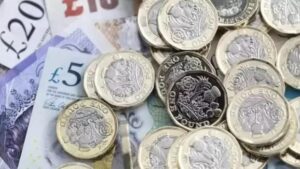
In the ongoing civil fraud trial involving Donald Trump and his family business, the spotlight has turned to the valuation of Mar-a-Lago, a property often hailed by Trump as the “Mona Lisa” of real estate. The trial, now in its 10th week in New York, hinges on the alleged inflation of asset values, including Mar-a-Lago, which poses a substantial threat to the Trump family business.
At the heart of the dispute lies a perplexing valuation, ranging from a tax assessment of $18 million (£14.3 million) to a courtroom witness’s bold assertion that Mar-a-Lago could fetch over $1 billion (£797 million) in the market. The prosecution contends that Trump, his two adult sons, and the Trump Organization deliberately inflated these values to secure more favorable loan terms, resulting in substantial savings exceeding $150 million over a decade. The trial, bereft of a jury, is navigating the complex terrain of legitimate real estate valuations versus allegations of fraud.
Prior to the trial, Judge Arthur Engoron, a Democrat, ruled that the financial documents at the core of the allegations “clearly contain fraudulent valuations,” holding the defendants liable for fraud. Trump has already appealed this pre-trial ruling on one count, leaving the judge to decide on six additional fraud counts, all of which hinge on providing evidence of intent.

Mar-a-Lago, a historic Palm Beach property, introduces unique complexities to the valuation dilemma. Deed restrictions, established in the 1990s, dictate that the property can only function as a private club, with limitations on subdivision and substantial preservation expenses for the estate, originally built in 1927 for businesswoman and socialite Marjorie Merriweather Post. Trump, at one point, referred to Mar-a-Lago as a “white elephant” that was “almost impossible to sell.” The shift to a private club allowed him to utilize hefty membership fees for preservation and maintenance costs.
According to Rosalind Clarke, a Palm Beach real estate agent, valuing Mar-a-Lago is inherently challenging due to these deed restrictions. Clarke emphasizes that the property’s value is intricately linked to the profits of the club, rather than the traditional method of assessing land value. She suggests that if the deed restrictions did not exist, the property’s value would be significantly higher.
Between 2011 and 2021, Trump is accused of valuing Mar-a-Lago as if it had no deed restrictions. Judge Engoron highlighted that the Palm Beach County Assessor appraised the property’s market value at a significantly lower range—between $18 million and $27.6 million—for tax purposes during the same period. In stark contrast, Trump valued Mar-a-Lago between $426.5 million and $612 million, marking an overvaluation of at least 2,300% compared to the assessor’s appraisal.
WATCH MORE UPDATE NEWS
Real estate experts note that tax assessor values are typically conservative compared to potential selling prices, making direct comparisons challenging. The New York attorney general argues that the Trump Organization arrived at these inflated values using the price-per-acre of “comparable” properties—properties without deed restrictions. This, according to the prosecution, constitutes fraud, as the Trump Organization allegedly ignored Mar-a-Lago’s deed restrictions while assigning values as if it were a private residence.
Luxury real estate broker Lawrence Moens, called as a witness by Trump’s legal team, testified that Mar-a-Lago was worth over $1 billion. Moens suggested that figures such as Elon Musk and Bill Gates, along with “kings, emperors, heads of state,” would be interested in acquiring the property if deed restrictions were not in place.
However, Mitchell Epner, an attorney handling commercial litigation, points out a significant challenge for Trump. He notes that “the judge has already found that the most important documents in this case were all false.” If found liable, the Trump family business could face fines of at least $250 million, and the worst-case scenario includes a ban on conducting business in New York, along with the potential sale of iconic landmarks, including Mar-a-Lago. The trial’s final outcome hinges on Judge Engoron’s ruling on the remaining fraud charges and potential penalties, following this week’s concluding testimonies.
source: BBC NEWS




















+ There are no comments
Add yours